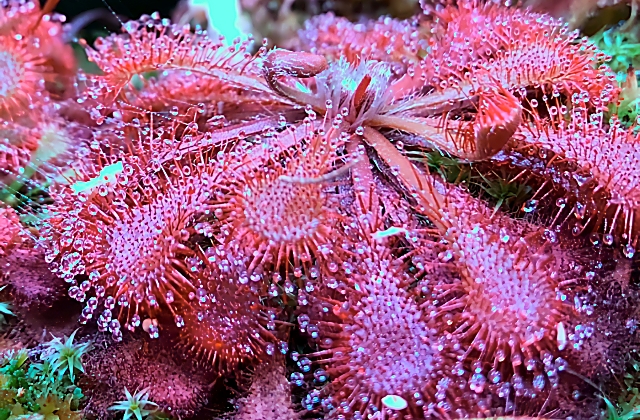How To Properly Support Your Carnivorous Cactus With Nutrients

A carnivorous plant is one with a hollow stem and, usually, a single leaf. Some carnivorous plants (such as blood-red clover) have alternate leaves that are leaflets. Most carnivorous plants belong to the lily family, Cucurbitaceae. The cactus is a member of the family of palms. It can be found in dry and tropical climates all over the world.
Carnivorous plants are used as food or medicine. They are also used as an ornamental plant by decorating arid areas with them. This is because they make good plants to display for people. With the right care, carnivorous plants can live more than a hundred years.
In the natural environment, carnivorous plants grow on the ground in dense clumps. These clumps usually contain several seeds. When these seeds dry out, they begin to grow into a cactus-like plant. As it grows, these cactus-like plants spread outwards until they are about four to five feet high. A single stem will usually reach up to three feet in height.
When it comes to caring for a carnivorous plant, the most important factors to take into consideration are moisture and nutrition. A cactus, due to its shape, is unable to absorb large amounts of water. However, if the soil is moist enough, the cactus can absorb a substantial amount of nutrients from the water.
One nutrient that a plant needs to grow well is nitrogen. A good way to ensure that a plant receives plenty of nitrogen is to plant it in a well-drained area. A well-drained soil is one that contains large amounts of dissolved oxygen, so it is best to avoid areas with too much clay or silt. Clay is often a major factor in limiting the growth of certain kinds of plants, like the cactus. Growing carnivorous plants is often a great way to solve this problem.
Plants that rely on plant foods for survival must have enough protein and minerals in their diet. Plants like the cactus do well when they receive lots of animal-based nutrition, such as protein, calcium, and phosphorus. Other nutrients needed by carnivorous plants include iron, magnesium, and sulphur.
A carnivorous plant is also known for needing a considerable amount of water. The leaves of this plant are rarely ever green because of the amount of water they need to stay healthy. If you are planning to grow a carnivorous plant, you should keep in mind that it has unusual demands on its water supply. If the area where you live does not offer the amount of water your plant needs, you may consider purchasing a hydroponic system to increase the amount of water available to your plants.
carnivorous plants are among the easiest and most rewarding types of hobby plants to grow. With a minimal amount of care, they can provide you with bountiful produce year after year. If you enjoy gardening, you may want to consider planting some of these succulents for their plant nutrition needs. You can find plenty of information online to help you plan an effective carnivorous plant nutrition system.
Proper plant nutrition is essential to a carnivorous plant’s success. Not only does the plant need a rich nutrient base, but the plant also needs the correct temperature and humidity levels. The carnivorous plant likes a humidity level of around thirty percent. To ensure your plants thrive, make sure to check the humidity level daily and make adjustments as needed.
One common nutrient that many plants lack is protein. Fortunately, a lot of foods are high in protein. Meat sources like venison, poultry, beef, salmon, and eggs are great for supporting a carnivorous cactus. If you do not happen to have these meats around your house, dried beans, grains, nuts, and seeds are good substitutes for meat. By properly supporting your carnivorous cactus with appropriate food, you will be able to give them everything they need to survive.
Proper plant nutrition involves a proper pH level. This is necessary for the plant to thrive. Alkaline foods support your plants health and can be found in such foods as milk, coconut oil, apple cider vinegar, honey, garlic, onions, spinach, and bananas. Adding some of these foods to your diet will go a long way in supporting a healthy carnivorous plant.
A key part of good plant nutrition is making sure you provide adequate amounts of vitamins and nutrients. Carnivorous plants must have the correct amount of vitamins B and C, calcium, iron, zinc, and more. These are all essential to a healthy plant. You can find these nutrients in a wide range of different foods, and by providing your carnivorous cactus with the proper food sources, you will be able to provide it with all of the nutrients it needs to thrive.